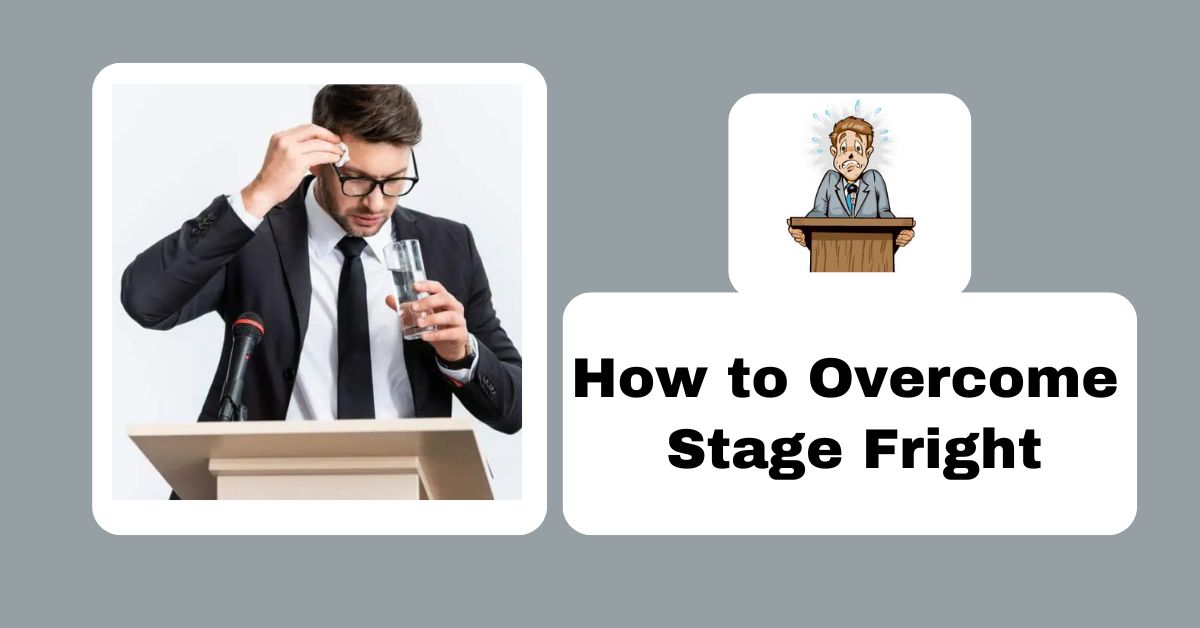In this Article;
• Understanding Stage Fright
• Common Triggers of Stage Fright
• How To overcome Stage Fright
• Expert Secrets for better performance on stage
Stage Fright – How to Overcome Stage Fright
Understanding Stage Fright
Stage fright, often referred to as performance anxiety, is a common fear that many individuals face when stepping into the limelight.
Whether it’s public speaking, performing on stage, or even just speaking in front of a group, the symptoms of stage fright can be overwhelming.
However, the good news is that stage fright is a manageable condition, and with the right strategies and mindset, you can learn how to overcome it.
In this comprehensive article, we will explore the nature of stage fright, its underlying causes, and provide practical techniques and tips for conquering this fear.
Common Triggers of Stage Fright
- Understanding the common triggers for stage fright can help individuals better manage and overcome this anxiety. Here are eight common triggers:
Fear of Judgment: The fear of being judged by others is perhaps the most common trigger for stage fright. People worry that their audience will criticize or ridicule their performance, which can lead to self-doubt and anxiety.
Fear of Failure: Many individuals fear making mistakes or failing in front of an audience. This fear of not meeting their own or others’ expectations can be a significant source of anxiety.
Lack of Preparation: Inadequate preparation, whether it’s not knowing the material well enough or not rehearsing sufficiently, can trigger stage fright. When individuals feel unprepared, they worry about forgetting their lines or stumbling through their presentation.
Low Self-esteem: A poor self-image or low self-esteem can contribute to stage fright. When individuals have a negative self-perception, they may doubt their abilities and fear that others will see them in the same negative light.
Past Negative Experiences: Previous negative experiences or traumatic performances can leave a lasting impact on an individual’s confidence. The memory of a past failure can trigger anxiety in future performances.
Perceived High Stakes: Feeling that a performance or presentation has high stakes, such as a job interview or a critical business pitch, can intensify stage fright. The pressure to succeed in these situations can lead to increased anxiety.
Physical Symptoms: The physical symptoms of stage fright, such as a racing heart, sweaty palms, and trembling voice, can be triggers in themselves. The fear of these physical manifestations can create a vicious cycle of anxiety.
Large or Unfamiliar Audiences: The size and familiarity of the audience can also trigger stage fright. Some individuals may feel more comfortable speaking or performing in front of a small, familiar group but become anxious when facing a large or unfamiliar audience.
Overcoming Stage Fright
Practice and Preparation
One of the most effective ways to reduce anxiety is thorough preparation. Know your material inside and out. Practice your speech, presentation, or performance multiple times, and rehearse in front of friends or family to simulate the experience of performing in front of others.
Familiarity with your content and routine can boost your confidence and help you feel more in control on stage.
Deep Breathing and Relaxation Technique
You can calm your anxieties by engaging in deep breathing exercises and relaxation techniques. Before taking the stage, practice deep, slow breaths to regulate your heart rate and ease physical tension.
Incorporate techniques like progressive muscle relaxation, meditation, or mindfulness to reduce overall anxiety.
Visualization
Visualization involves mentally rehearsing your performance in a positive and successful manner. Close your eyes and imagine yourself confidently delivering your speech or performing flawlessly.
Visualizing success can boost self-confidence and help reframe your mindset about the upcoming performance.
Positive Self-Talk
Positive affirmations and self-talk can help to replace negative ideas and self-doubt. Challenge and reframe irrational beliefs or catastrophic thinking patterns that contribute to anxiety.
Remind yourself of previous triumphs and concentrate on your own qualities and talents.
Exposure and Gradual Desensitization
Gradual exposure to public speaking or performing can help desensitize you to the anxiety triggers associated with stage fright. Start with small, low-pressure situations and gradually work your way up to larger audiences.
Join public speaking or performance groups to gain more experience and build confidence over time. The more you expose yourself to the fear, the less intense it becomes.
Additionally, seeking professional help, such as working with a therapist or a public speaking coach, can provide tailored strategies and support in overcoming stage fright. They can help you identify the specific root causes of your anxiety and develop a personalized plan for improvement.
Expert Secrets for better performance on stage
Thorough Preparation:
Prepare your material thoroughly. Whether it’s a speech, a play, or a musical performance, knowing your content inside and out will boost your confidence. Practice until you can execute it correctly.
Rehearse Regularly:
Practice is key to a successful performance. Rehearse your performance multiple times, preferably in conditions similar to the actual stage setting. This will help you become familiar with the environment and reduce anxiety.
Body Language and Posture:
Maintain proper posture and make eye contact with the audience. Use gestures that complement your message and engage your audience. Confidence in your physical presence can convey confidence in your performance.
Connect with Your Audience:
Make sure to connect with your audience. Start with a compelling introduction, and maintain engagement throughout your performance. Speak or perform with passion and authenticity to connect on an emotional level.
Stay Hydrated and Rested:
Prioritize self-care before the performance. Stay hydrated, get enough sleep the night before, and avoid consuming heavy meals or caffeine close to your performance time. A well-rested and hydrated body and mind perform better.
Adaptability:
Be prepared for unexpected situations. If something goes wrong during your performance, such as a technical glitch or a forgotten line, stay calm and improvise if necessary. The ability to adapt demonstrates professionalism and can save the performance.
Remember that conquering stage fright is a journey, and progress may be gradual. By building self-confidence, embracing positive thinking, and facing your fear with courage, you can step into the spotlight with newfound confidence and achieve success in your personal and professional pursuits.






